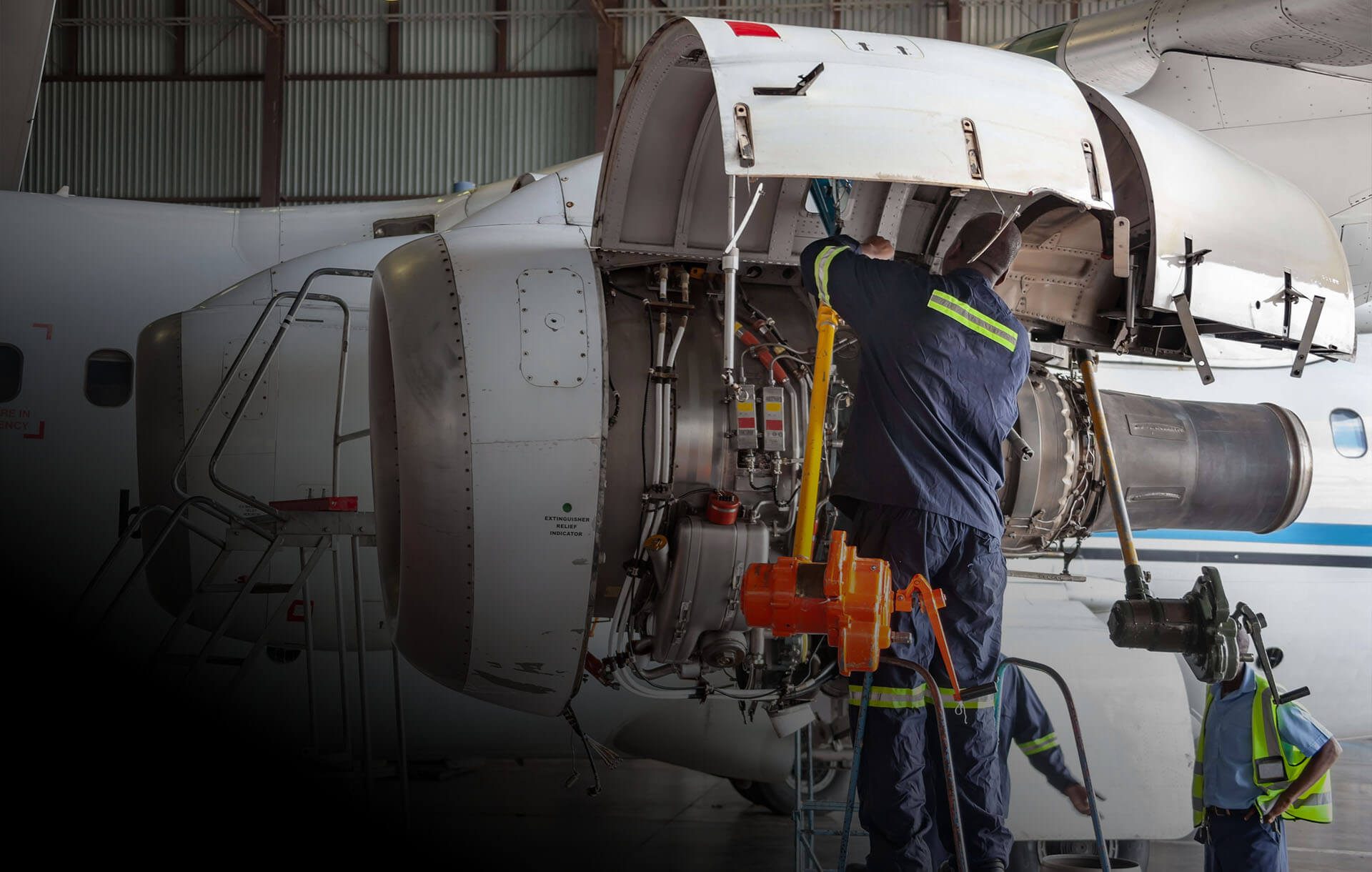Robotic Process Automation (RPA) utilizes software robots or “bots" to execute repetitive, rule-based tasks typically managed by humans. These tasks include data entry, data processing, and other administrative functions. In aircraft maintenance, RPA can automate a broad range of activities, from routine inspections to processing maintenance records and generating compliance reports.

Reducing downtime and costs in aircraft maintenance with RPA
The introduction of Robotic Process Automation (RPA) marks a significant innovation in aircraft maintenance. By automating routine tasks such as inspections, data entry, and reporting, RPA is transforming the industry, leading to notable reductions in downtime and operational expenses.
The introduction of Robotic Process Automation (RPA) marks a significant innovation in aircraft maintenance. By automating routine tasks such as inspections, data entry, and reporting, RPA is transforming the industry, leading to notable reductions in downtime and operational expenses.
Exploring RPA in aircraft maintenance
Automating routine inspections
A major impact of RPA is seen in routine inspections. Aircraft must undergo regular inspections to ensure airworthiness and adherence to safety standards. These inspections involve checking numerous components and systems, a traditionally manual, time-consuming process prone to human error, potentially leading to prolonged aircraft downtime.
RPA automates these inspection processes using advanced algorithms and machine learning to analyze sensor data and maintenance logs. For instance, bots can examine sensor data from various aircraft systems to detect anomalies or potential issues. This accelerates the inspection process, enhances accuracy and reliability, and ensures no detail is missed.
Streamlining data entry and processing
Aircraft maintenance generates substantial data that must be accurately recorded and processed, including maintenance logs, inspection reports, parts replacement records, and compliance documents. Manual data entry is labor-intensive and prone to errors, leading to delays and higher costs.
RPA bots can perform these data entry tasks quickly and accurately. They can extract information from multiple sources, such as maintenance manuals, inspection reports, and databases, and input it into required systems. Automating data entry reduces the administrative workload on maintenance staff, allowing them to focus on more critical tasks, while ensuring maintenance records are current and easily accessible for better decision-making and compliance.
Improving reporting and compliance
Compliance with regulatory requirements is crucial in aircraft maintenance. Airlines must regularly submit detailed reports to aviation authorities to demonstrate their aircraft meet all safety and maintenance standards. Manually preparing these reports can be time-consuming and prone to inaccuracies.
RPA streamlines the reporting process by automating the collection, analysis, and formatting of data required for compliance reports. Bots can gather information from various maintenance systems, compile it into standardized formats, and even submit reports to relevant authorities. This ensures accuracy and consistency, while significantly reducing the time and effort needed to meet regulatory requirements.
Cutting downtime and costs
The key advantage of RPA in aircraft maintenance is the reduction of downtime and costs. By automating routine inspections, data entry and reporting, RPA speeds up maintenance processes, allowing aircraft to return to service faster. This reduces the time aircraft spend grounded, maximizing their availability for revenue flights.
Moreover, the increased accuracy and reliability provided by RPA minimize the risk of maintenance errors that could lead to expensive repairs or operational disruptions. Streamlining data entry and processing also lowers administrative costs and frees maintenance personnel to concentrate on higher-value tasks.
Conclusion
Robotic Process Automation is revolutionizing aircraft maintenance by automating routine tasks, improving efficiency and lowering costs. As airlines continue to implement RPA, they can expect great improvements in operational performance, ensuring their fleets remain reliable and cost-effective. Using RPA is a strategic step for efficient and competitive aviation industry.
